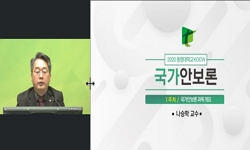국가에 의한 민사상 명예훼손은 일반적인 명예훼손 소송과는 다른 여러 가지 특별한 법적 문제를 야기한다. 우선 문제된 표현행위가 국가의 고유한 인격, 즉 국가의 고유한 사회적 평가를 ...
http://chineseinput.net/에서 pinyin(병음)방식으로 중국어를 변환할 수 있습니다.
변환된 중국어를 복사하여 사용하시면 됩니다.
- 中文 을 입력하시려면 zhongwen을 입력하시고 space를누르시면됩니다.
- 北京 을 입력하시려면 beijing을 입력하시고 space를 누르시면 됩니다.
표현의 자유와 국가의 명예훼손 소송 - 국가가 제기한 명예훼손 소송에 대한 비판적 검토 - = Freedom of Sneech and Defamation Actions by Governmental Entities
한글로보기https://www.riss.kr/link?id=A105713125
- 저자
- 발행기관
- 학술지명
- 권호사항
-
발행연도
2010
-
작성언어
-
-
주제어
표현의 자유 ; 국가 ; 명예훼손 ; 인격권 ; 명예훼손 소송 ; freedom of speech ; governmental entities ; defamation ; action for defamation
-
자료형태
학술저널
-
수록면
77-110(34쪽)
- 제공처
- 소장기관
-
0
상세조회 -
0
다운로드
부가정보
국문 초록 (Abstract)
국가에 의한 민사상 명예훼손은 일반적인 명예훼손 소송과는 다른 여러 가지 특별한 법적 문제를 야기한다. 우선 문제된 표현행위가 국가의 고유한 인격, 즉 국가의 고유한 사회적 평가를 침해하였다고 볼 수 있는 가이다. 법인에 대한 명예훼손의 불법행위가 성립하기 위해서는 법인에 대한 “사회적 평가”를 저해하여야 하기 때문이다. 그러나 국가가 고유한 인격을 가졌다고 보기 어려우며, 국가가 주장하는 명예란 단지 국가기능의 수행에 대한 신뢰를 얻거나 유지하려는 국가의 이익을 말하는 것으로 보아야 한다. 그런데 이러한 국가 이익에 대한 위해 내지 침해는 특정인의 피해라고 볼 수 없어 구체적 손해의 발생이라는 불법행위책임의 성립요건을 충족시키지 못하게 된다. 그리고 이러한 국가 이익이 설사 존재한다 할지라도 헌법상 기본권인 표현의 자유를 제약할 수 있을 정도로 중대한 법익이 될 수 없다. 어떠한 표현행위가 위법한지는 상충되는 두 법익의 이익형량으로 결정되는데, 표현의 자유는 이와 같은 국가의 이익을 초월하는 우월한 헌법상의 지위에 있으므로 국가에 대한 표현행위는 위법성이 없다는 결론에 이르게 된다. 국가는 위와 같은 국가 이익을 달성하기 위하여 반론보도청구권을 비롯한 다양한 제도적 장치를 가지고 있으나, 피해의 전보를 목적으로 하는 민사 소송은 그러한 제도적 장치가 될 수 없다. 영미국가의 판례와 같이 “정부가 제한 없는 비판에 열려있어야 한다는 것은 가장 중요한 공익”이기 때문이다. 따라서 표현의 자유를 억제하는 국가의 이익이란 가장 덜 침익적인 방법에 의해 필요최소한도로 이루어져야 하는 바, 민사상 명예훼손 소송은 이러한 방법에 속한다고 볼 수 없을 것이다.
다국어 초록 (Multilingual Abstract)
It is controversial issue whether governmental entities may sue for defamation. This article addresses that defamation action by governmental entities do not have no cause of action. First, No damages can be found in the case. Governmental entities ca...
It is controversial issue whether governmental entities may sue for defamation. This article addresses that defamation action by governmental entities do not have no cause of action. First, No damages can be found in the case. Governmental entities can not be defamed with regard to the exercise of their sovereign power, therefore they don’t have the right to sue for redress of damages to its reputation. It may be called not the government’s reputation but the credibility of the government in the exercise of its powers of sovereignty while it brings action for defamation alleging damages to its reputation. However, the freedom of speech, the right to discuss the government, is too important to be limited by the concern to the credibility of the government. Therefore, the criticism of government may not be illegal statement as defamation. There are many mechanism to enhance the credibility of the government, for example, the right to reply. However, the civil remedy of defamation may not be the means of the government to do it. As the English authority says, ”It is of the highest public importance that any governmental body should be open to uninhibited public criticism”. The freedom of speech should be recognized as the essential right of democracy. The power to stifle all opposition to silence critics by suit should not be in the hand of the government.
동일학술지(권/호) 다른 논문
-
종교적 비판행위와 명예훼손죄의 성부 - 대법원 2009.4.23. 선고 2009도2057 판결 -
- 연세대학교 법학연구원 공공거버넌스와 법센터
- 한상훈 ( Han Sang Hoon )
- 2010
-
- 연세대학교 법학연구원 공공거버넌스와 법센터
- 손인혁 ( Son In-hyuk )
- 2010
-
- 연세대학교 법학연구원 공공거버넌스와 법센터
- 권미혁 ( Kwon Mi-hyuk )
- 2010
-
건강보험에서 부정청구에 대한 통제 - 독일의 제도와 정책적 함의 -
- 연세대학교 법학연구원 공공거버넌스와 법센터
- 전광석 ( Cheon Kwang Seok )
- 2010




 KISS
KISS







